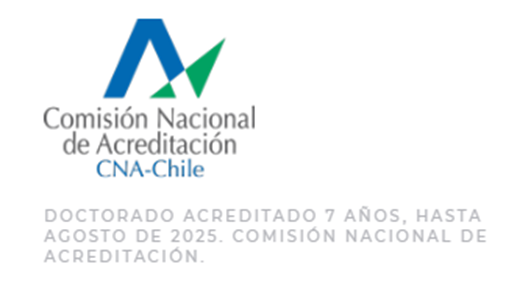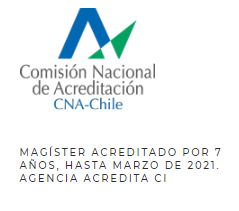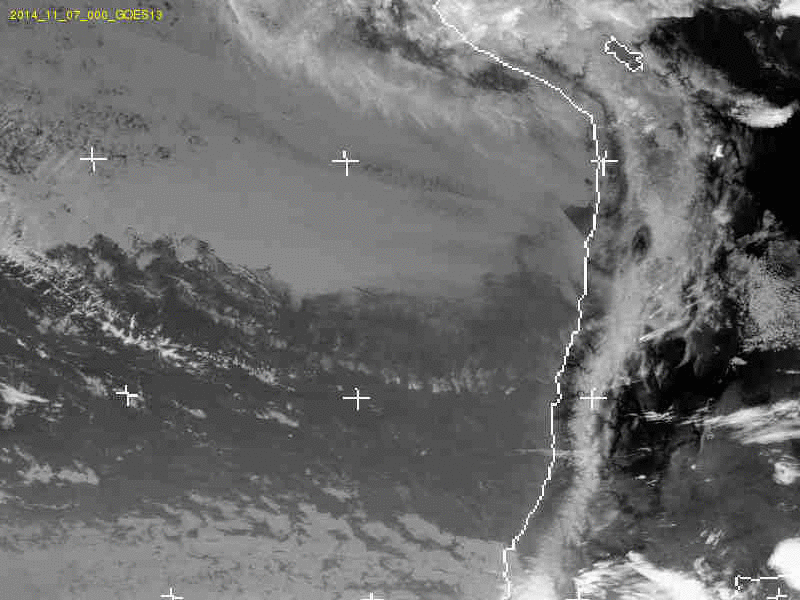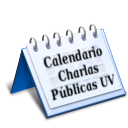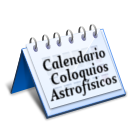The Instituto de Física y Astronomía opened its PhD Program in Astrophysics in 2013.
Program Resume: Timetable: Complete and diurnal. Duration: 8 semesters/240 SCT credits. Place: Faculty de Ciencias, Gran Bretaña 1111, Playa Ancha, Valparaíso. Vacancies: 5
PhD Study Program: download .pdf file
Steps for applying to the Phd. Program in Astrophysics:
Send the following documentation to Sergio Balbontín, in charge of applications to the Program (This email address is being protected from spambots. You need JavaScript enabled to view it.) with copy for Dr. Eduardo Ibar (This email address is being protected from spambots. You need JavaScript enabled to view it.) Director of the Postgraduate Program in Astrophysics
1.- Cover and Motivation Letter, addressed to Dr. Eduardo Ibar.
2.- Currículum Vitae
3.- Photocopied Title(s) Certificate(s)
4.- Two (2) letters of recommendation, addressed to Dr. Eduardo Ibar.
5.- A certified list of grades
6.- Photocopy of RUT or ID (identification) card.
7.- Any other document deemed of interest which may back up a better application.
8.- Please fill out the following form with all your information
Background for the PhD. Program in Astrophysics
Chile has a worldwide excellency in Telescope infrastructure and astronomical instrumentation. In all present and future installations astronomers who work in Chilean Institutions will have a 10% guaranteed observing time. This means that Chile can become a leading country in scientific investigation in astronomy. This allows our country to have unique development opportunities in this area, having a positive impact in the workfield increasing the demand for specialized personnel. The Phd. program in astrophysics aims to contribute to the formation of new scientists, capable of producing and transferring knowledge in this area. Current students from our Master´s Program in Astrophysics as well as potential students fromm other Masters programs will have the opportunity of being formed by an outstanding academic group, characterised by high scientific productivity levels and strategic alliances with national and international institutions that enable student mobility during the formative process.
Aims of the Postgraduate Program
The PhD. Program aims to form the human resources necessary for doing scientific investigation in astronomy. The PhD. Program is intended for those students highly motivated to working in the area of astrophysics. They will be well prepared to do astronomical research of the highest level, as well as work in teaching or outreach in the astronomical area. The PhD. in Astrophysics will have an advanced formation in physics applied to astronomical phenomena, critical capacity and an independence of criteria, and of course focused on providing the student with a profound experience in research of the highest level, inserting therein the best of the scientific investigation area, the best students graduated from our licenciatura and/or our Master´s program in Astrophysics. Its aim is to offer physics and/or astronomy students from Chile and abroad the opportunity of forming a solid scientific creation environment, as well as to form research groups with Phd. students, postdocs and professors and generate more international collaborations with universities in Europe and USA.
Student Profile
To enter the program the student must have a Bachelor in Astrophysics or Physics, degree or an academic degree or professional title that can be considered equivalent in level, content and duration and that can account for a satisfactory previous formation for the aims and requirements of the program. The applicants must demonstrate an adequate knowledge and use of the english language.
Academic Team
The Instituto de Física y Astronomía of the University of Valparaíso has an extense academic team with PhD. degrees in Astronomy, Astrophysics or Physics who undertake leading edge investigation in their respective areas within the Centro de Astrofísica de Valparaíso (first research center in astrophyics in the V Region). They are in charge of the courses given in the PhD. Program in Astrophysics.
Professional Profile
On finishing the curricular requirements, the student will receive a Phd. in Astrophysics degree. He/she will have acquired fundamental knowledge in Contemporary Physics and Advanced Astronomy. The graduate will be ready to involve up to date advances in his/her professional scientific work, in interaction with other investigators and in future make ample scientific use of existing infrastructure for astronomy in Chile. This includes observational astrophysicists that generate and execute scientific projects that make direct use of telescopes as well as theoretical astrophysicists whose work is the physical-mathematical modelling of the observed phenomena.
Workfield
The Program delivers the necessary competences so that the student can join the national and international workfield succesfully. The occupational field within Chile and abroad covers Universities and Higher Education Institutions, Astronomical and Radio Observatories, Institutes and Research Centers, Software Development and Scientific Instrumentation Companies, Private and State Companies, Consultory and/or Assesors, Scientific and Astronomical Tourism
LINKS OF INTEREST
PhD Program Regulations: download .pdf file
Dates of Interest: inscription and tuition fees, vacancies, etc.
INFORMATION:
Complete Data for the PhD Program in Astrophysics: Program Resume, Study Program, application dates, processes, contacts.
NEWS AND DATES OF INTEREST:
October 23, 2017: Deadline for applications
DOCUMENTS
PhD Study Program: download a .pdf file
Regulations PhD Program: Download a .pdf file
LINKS OF INTEREST
DATES: inquire about application dates, inscriptions, cost, vacancies, etc.
Induction 2016: Induction Day 2016
The Instituto de Física y Astronomía opened its Master's Program in Astrophysics in year 2011:
Program: Timetable: diurnal. Duration: 4 semesters/78 crédits SCT. Address: Facultad de Ciencias, Gran Bretaña 1111, Playa Ancha, Valparaíso. Vacancies: 5
Find out all about application dates, inscriptions, cost, vacancies, etc.
Download the MASTERS STUDY PROGRAM
See the COURSES CONTENTS FOR THE MASTER´S PROGRAM
Steps for applying to the Astrophysics Master Program:
1.- Preliminary Application to the Program: this preliminary application is aimed at presenting the future student to the Postgraduate Department, and to establish and maintain contact with them for future communications regarding their application. Once you have signed up in the system you will be kept informed of date when you have to send in your academic documentation, which you can upload via the same system.
2.- Final Application: The date for final applications will be communicated by mail to the address specified in the Preliminary Application. All associated documentation will have to uploaded to the system (which will give all necessary instructions) and must also be sent by mail to Sergio Balbontín, in charge of applications to the Program (This email address is being protected from spambots. You need JavaScript enabled to view it.) with copy to Dr. Eduardo Ibar (This email address is being protected from spambots. You need JavaScript enabled to view it.) Director of the Astrophysics Masters Program.
Documents that will be required when making the Final Application.
1.- Cover and Motivation Letter, addressed to Dr. Eduardo Ibar.
2.- Currículum Vitae
3.- Photocopied Title(s) Certificate(s)
4.- Two (2) letters of recommendation, addressed to Dr. Eduardo Ibar.
5.- A certified list of grades
6.- Photocopy of RUT or ID (identification) card.
7.- Any other document deemed of interest which may back up a better application.
8.- Please fill out the following form with all your information
Important Note: The Program will conditionally accept applicants that do not come from a scientific astronomy area, but they will required to take additional courses to qualify. These students must take all the necessary courses specified by the Academic Comittee of the Program, and achieve a minimum grading of 5.0 to qualify for the Master´s Program. If this is not achieved the student will be elliminated from the Program.
3.- Entry Examination. Applicants to the Master in Astrophysics Program must sit an Entrance Exam in January (date to be informed every year) that covers specific topics. You may download a .pdf file with the Topics and Bibliography for the examination.
Information on the Master´s Program in Astrophysics
Chile posesses a telescope and instrumentation infrastructure of world wide excellency. The need to prepare human resources prepared to use those telescopes and develop high level astronomy research justifies the proposal of our Masters Program in Astrophysics. On the other hand, postgraduate studies are an integral and fundamental part of the formation process of academics and scientists who aim to achieve excellency in their professional work. All this is contained in the Mision included in the Development Plan of the Faculty for Sciences of the University of Valparaíso
Aims of the Postgraduate Program
The Program aims, on an inmediate basis, to strengthen the basic formation of the Licenciado en Física y Astronomía or related sciences in specialized areas of Astrophysics, with the purpose of advancing top level scientific research in Astronomy and related sciences, formed by an excellent academic group, characterized by high scientific productivity and strategic alliances with national and international institutions.
Student Profile
The prospective student has to be in possesion of a Bachelor of Sciences degree with mention in Astronomy or Physics or an academic degree or professional title that can be considered equivalent in level, content and duration, and who can certify a previous formation satisfactory enough for the aimis and requirements of the Program. Those applying must likewise demonstrate an adequate knowledge in the english language.
Academic Personnel
The Physics and Astronomy Department is composed of academics with a Phd degree in Astronomy and Astrophysics (as well as academics with PhD in Physics) who are currently doing first level research in their respective areas in the Astrophysics Center of Valparaíso (first Center of its kind in the V Region of Chile). They are in charge of teaching the students of the Master in Astrophysics Program.
Professional Profile
Having complied with the curricular requisites the student will receive his/her Master´s in Astrophysics degree and will have acquired fundamental knowledge in Contemporary Physics and Advanced Astronomy. The program graduate will be able to interact with other investigators through his/her professional scientific work in up to date areas, and, in future, make complete and scientific use of the existing astronomy infrastructure in Chile. These include observational astrophysicists that generate and execute scientific projects that make direct use of the telescopes, as well as theoretical astrophysicists whose work is the physical-mathematical modelling of the observed phenomena.
Working Field
The Program delivers the skills necessary so that the student may succesfully join the national and international workfield. The national and international occupational field covers Universities and Higher Studies Institutions, Astronomical and Radio-Astronomical Observatories, Research Centers and Institutions, Scientific Instrumentation and Software Development Companies, Private and State Companies, Consultants and/or Advisors, Scientific and Astronomical Tourism Companies.
The Institute of Physics and Astronomy opened the program of Doctorate in Astrophysics in the year 2013.
Program Information: Schedule Full-time. Duration: 8 semesters/240 credits SCT. Location: Faculty of Sciences, Gran Bretaña 1111, Playa Ancha, Valparaíso. Places: 5
ADMISSION PROCESS 2018 (in Spanish)
Application Requirements
The Doctoral Program in Astrophysics is open to those that have obtained an academic degree (Bachelors or Masters), in disciplines such as Astronomy, Physics, Mathematics, or similar. Applicants that have obtained degrees from countries outside Chile must present documents certified and authorised by the appropriate authorities.
Send the following documentation to Sergio Balbontín, coordinator of postgraduate applications (This email address is being protected from spambots. You need JavaScript enabled to view it.) with copies to Dr. Eduardo Ibar (This email address is being protected from spambots. You need JavaScript enabled to view it.), Director of the Postgraduate Program in Astrophysics.
- Motivation letter explaining why you wish to apply to the program.
- Up-to-date curriculum vitae.
- Certified copy of your degree, and your transcript of grades.
- Copy of your ID card or passport.
- 2 recommendation letters.
In addition, please fill out this form with your full information.
Overview of the Doctoral Program in Astrophysics
Chile is equipped with a world-class infrastructure of telescopes and astronomical instrumentation. For all present and future astronomical facilities, astronomers that work in Chilean institutions have access to 10% of guaranteed observation time. This ensures that Chile has the possibility of becoming a leading country in scientific research in the field of astronomy. Furthermore, this implies that our country has unique opportunities for development in this area, which positively impacts employment prospects, increasing the demand for specialised personnel. The goal of the doctoral program in Astrophysics is to contribute to the education of new scientists capable of producing and transferring knowledge in this field. Current students of our Masters program in Astrophysics, as well as students of other Masters programs, will have the opportunity to be guided in their doctoral studies by an academic group of scientific excellence, characterised by high indexes of scientific productivity, as well as being able to take advantage of strategic alliances with national and international institutions that enable student mobility during their doctoral studies.
General Objective of the Doctorate
To train high level researchers with a wide knowledge of Astrophysics.
Specific Objectives
- The formation of the human resource necessary to perform scientific research in Astrophysics.
- To place the best graduates of our Licenciatura and/or Magíster en Astrofísica in the field of scientific investigation.
- To offer to national and international students of physics and/or astronomy the opportunity to develop in an environment of strong scientific research.
- To form research groups that gather doctoral students, post-docs and professors.
- To generate collaboration networks with national and international institutions.
Graduate Profile
The Doctoral graduate will be capable of developing research in an independent manner in current areas of astrophysics, as well as being able to interact with other researchers and to use the infrastructure that Chile offers for astronomy. Moreover, it is important to note that the graduate of the program will be possessed of a breadth of knowledge of physics and astronomy. In addition the doctoral student has the opportunity to participate in national and international conferences, allowing for the presentation of their work to the astronomical community and to generate collaborative networks with other scientists. In the case of thesis projects oriented to the area of observations, the graduate can utilise the infrastructure of optical, infrared, millimetre and sub-millimetre telescopes that Chile offers for astronomy.
Research Areas
The areas of research of the program are directly linked to those most developed in the Institute of Physics and Astronomy and are the following:
- Stellar Astrophysics: study of the formation and evolution of stars.
- Galactic Astrophysics: study of the structure and formation theories of the Milky Way.
- Extragalactic Astrophysics: study of the formation and evolution of galaxies.
- Theoretical Astrophysics: theoretical studies of particle physics and cosmology.
Staff
The Institute of Physics and Astronomy of UV, has a strong academic group with Doctorates in Astronomy, Astrophysics or Physics, engaged in state-of-the-art research in their respective areas within the Centre of Astrophysics of Valparaíso (the first research centre in astrophyiscs in the Valparaíso region). These academics are responsible for giving the classes of the Doctoral Program in Astrophysics.
Research staff and their areas of study:
Stellar Astrophysics:
- Amelia Bayo: Substellar objects, Circumstellar disks, astrostatistics, Virtual Observatory.
- Michel Curé: Stellar winds, massive stars, stellar rotation, astrometeorology.
- Johan Olofsson: Planet formation, globular clusters.
- Matthias Schreiber: Proto-planetary disks, binary stars.
- Claus Tappert: Variable stars, interacting binary stars.
- Nikolaus Vogt: Variable stars, cataclysmic binaries, young low-mass stars.
- Maja Vuckovic: Astroseismology, hot sub-dwarf stars, pulsating binaries.
Galactic Astrophysics:
- Jordanka Borissova: Variable stars in star clusters, stellar evolution.
- Radostin Kurtev: Stellar populations, brown dwarfs, infrared astronomy.
Extragalactic Astrophysics:
- Patricia Arévalo: Active galactic nuclei, black hole accretion, galaxy clusters.
- Paolo Cassata: Extragalactic astronomy, formation and evolution of galaxies.
- Eduardo Ibar: Observational cosmology, formation and evolution of galaxies, active galactic nuclei, interferometry in radio and submillimetre.
- Verónica Motta: Cosmology, gravitational lensing, galactic lensing and high-redshift galaxies.
Theoretical Astrophysics:
- Graeme Candlish: Cosmology, gravitation, formation and evolution of galaxies.
- Víctor Cárdenas: Cosmology, dark matter, dark energy, inflation.
- Alfredo Vega: High-energy physics, particle theory.
- José Villanueva: Cosmology, inflation, dark energy, gravitation, modified gravity theories.
Academic Collaborators
- Iván González: High-energy theoretical physics, Feynman diagrams, hypergeometric functions.
- Katrin Noack: Professor of English.
Professional Profile
Upon completion of the curricular requirement, the student will receive the degree of Doctor in Astrophysics. They will have acquired fundamental knowledge in contemporary physics and advanced astronomy. The graduate of this program will be able to be involved in professional scientific investigation in current research themes, in interactions with other researchers and in the future make full scientific use of the existing infrastructure for astronomy in Chile. These collaborations include both observational astrophysicists that generate and execute scientific projects that make direct use of telescopes, and theoretical astrophysicists whose work is the physical-mathematical modelling of observed phenomena.
Employment Prospects
The program provides the competences necessary for the student to successfully incorporate themselves at the national and international level in this field of employment, which involves working in Universities and institutions of higher education, astronomical observatories, radio observatories, Institutes and Research Centres, software development enterprises, scientific instrumentation developers, state and private enterprises, consultancies, scientific and astronomical tourism organisations.
NEWS AND DATES OF INTEREST:
October 23, 2017: Deadline for applying
DOCUMENTS
Doctorate Curriculum (in Spanish): download as pdf
Regulations of the Doctoral Program from 2014 (in Spanish): download as pdf
Regulations of the Doctoral Program from 2018 (current regulations, in Spanish): download as pdf
LINKS OF INTEREST
Dates: click here for application dates, matriculation information, fees, vacancies, etc.
Induction 2018: under construction!
INFORMATION:
Complete Data for the Masters Program in Astrophysics: Program Resume, Study Program, application dates, processes, contacts.
NEWS AND DATES OF INTEREST:
October 23, 2017: Deadline for applications.
DOCUMENTS
Masters Study Program: download a .pdf file
Regulations Masters Program: download a .pdf file
LINKS OF INTEREST
Dates : inquire about application dates, inscriptions, costs, vacancies, etc.



